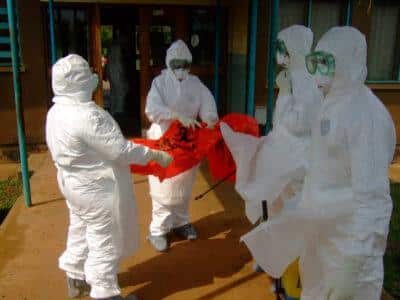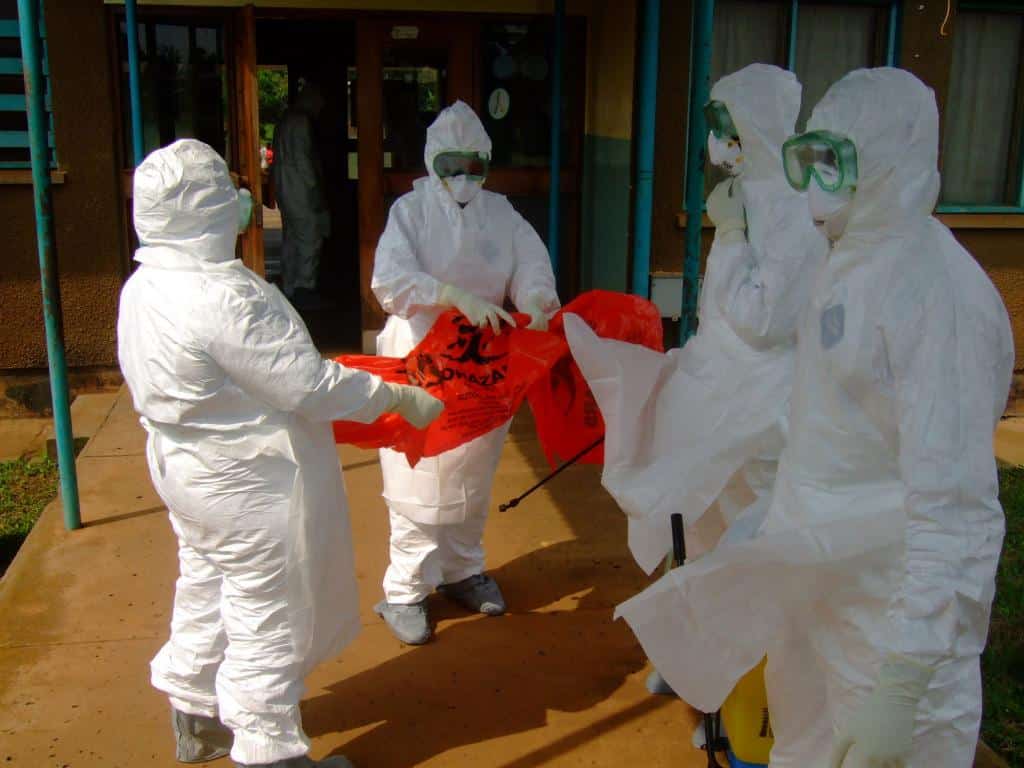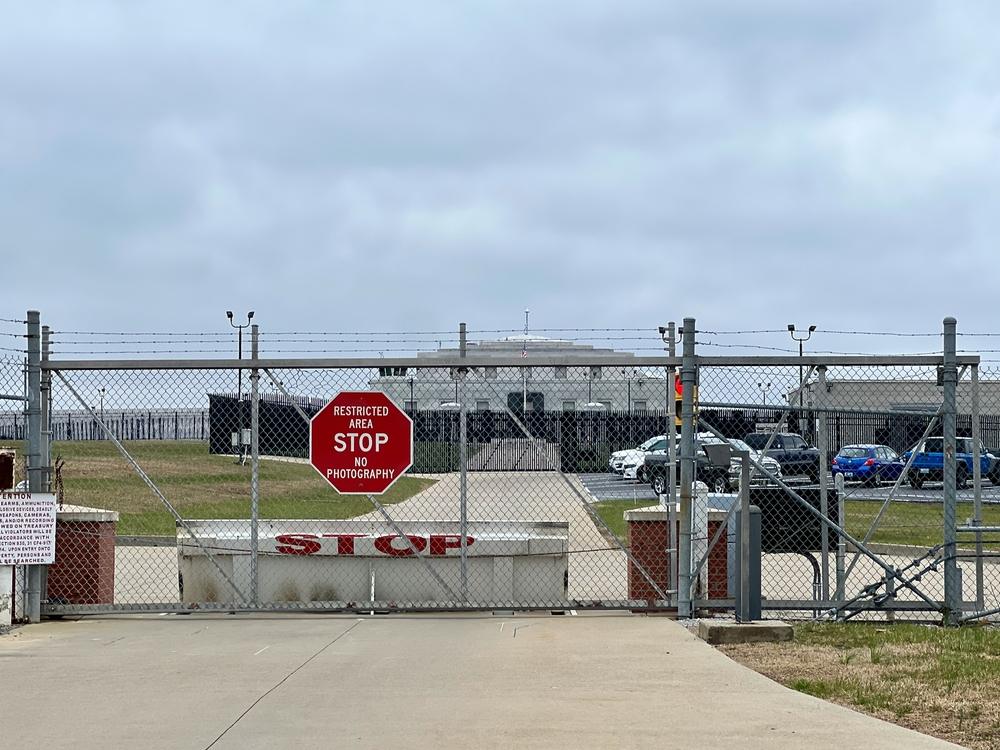
Despite the claims of politicians and experts, Ebola likely will keep spreading in the weeks and months ahead – and at rates that only can be described as frightening.
The question we may need to be asking is not “will Ebola will reach your hometown?” — but when.
Here are 4 reasons why the continued spread of Ebola throughout the United States and the world is highly probable, and why it can’t be stopped.
1. The United States and Canada are still allowing air travel from the nations of Sierra Leone, Guinea and Liberia where the Ebola epidemic is centered.
The Ebola patient who died in Dallas, Thomas Eric Duncan, had flown from Liberia. About 150 people each day fly from those three countries to the US. South Africa and a host of other African countries have closed off flights from the three West African countries, but the United States and Canada have not.
The most likely way Ebola could spread on planes may not be from contact with passengers, but from waste on planes. Some airliners are now so filthy and unsanitary that cabin cleaners at New York’s LaGuardia Airport walked off the job, The New York Daily News reported. The cleaners are angry because of the danger of potential exposure to Ebola.
“I have to deal with vomit, feces and a lot of chemicals, without proper equipment,” cleaner Johanna Cruz told The Daily News. “They give us gloves, but they might as well be made of paper because they rip so easily.”
New All-Natural Capsule Protects You From Dangerous Toxins And Pollutants!
“We don’t have the right safety gear,” said another cleaner, Wendy Arellano. “When you’re dealing with feces, you should have the right attire for dealing with that, like a body suit.”
Scientists currently believe that Ebola spreads through contact with body fluids such as blood, saliva and urine and human waste such as vomit and feces. The cleaners reported they often find such fluids on planes.
2. New airport screenings of passengers would not keep somebody like Duncan from travelling — and they’re easy to outwit.
Officials at US airports will start checking the temperatures of persons arriving from West Africa in an attempt to spot Ebola patients. A high fever is one of the symptoms of Ebola. It is believed Duncan did not have a fever when he landed in the US.
The screenings will be conducted at only five airports where 94 percent of all travelers from West Africa enter the United States. The screenings would be easy to get around by simply transferring to a flight that landed elsewhere.
Additionally, a person could outwit the screening by taking the over-the-counter pain reliever ibuprofen (Advil) and lying about the fever to airport screeners, Britain’s Daily Mail reported. News reports indicate that Duncan lied about Ebola exposure when he got on a plane in Monrovia, Liberia, to fly to Washington D.C.
Story continues below video
“The fever-screening instruments run low and aren’t that accurate,” infection control specialist Sean Kaufman told The Daily Mail. “And people can take ibuprofen to reduce their fever enough to pass screening, and why wouldn’t they? If it will get them on a plane so they can come to the United States and get effective treatment after they’re exposed to Ebola, wouldn’t you do that to save your life?”
The screenings also will include a series of questions about Ebola exposure, but a person easily could lie.
3. The nation’s medical facilities aren’t prepared for the Ebola outbreak.
When Duncan first began exhibiting symptoms he visited the emergency room at the Texas Presbyterian Medical Center and told the staff he had travelled to Liberia — but he was sent home.
The National Nurses United union surveyed nurses in early October and found a frightening level of unpreparedness at medical facilities:
- 87 percent of nurses admitted that their hospitals had not provided them with any education about Ebola or proper procedures for dealing with it.
- 80 percent of nurses said their medical facilities had no policies for dealing with Ebola patients.
- Around one-third of nurses said their facilities lack supplies of protective gear needed to protect healthcare professionals from Ebola.
- Almost 40 percent of nurses reported that their hospitals lacked proper isolation rooms to contain diseases such as Ebola.
- More than 60 percent of nurses think their hospitals lack the staff to deal with Ebola.
“We warned that it was just a matter of time in an interconnected world that we would see Ebola in the US. Now, everyone should recognize that Texas is not an island, either, and as we’ve heard from nurses across the U.S., hospitals here are not ready to confront this deadly disease,” the Union’s executive director, RoseAnn DeMoro, said.
4. Scientists are split on how this particular strain of Ebola spreads – and some experts believe it could already be airborne in close quarters.
“I see the reasons to dampen down public fears,” Dr. Philip K. Russell, a virologist who studied Ebola for the US Army, told The Los Angeles Times. “But scientifically, we’re in the middle of the first experiment of multiple, serial passages of Ebola virus in man. … God knows what this virus is going to look like. I don’t.”
Russell said that the current strain of Ebola is unlike others seen before – and more virulent and more likely to evolve into something else.
C.J. Peters, an expert on Ebola who led a major CDC study examining its transmission, said he could not rule out the possibility Ebola spreads in tight quarters. Some observers have been surprised at how many nurses and doctors in Africa caught Ebola, despite wearing protective suits.
“We just don’t have the data to exclude it,” Peters told the newspaper.
If you’re not scared of the deadly virus yet, you should be.
Do you believe Ebola will continue spreading – and that the Obama administration is doing enough to stop it? Leave your reply in the section below.











